Most local food lovers are well aware of the differences between a supermarket tomato and a local, organic heirloom tomato. In fact, sometimes the differences are so stark, they barely seem to resemble the same thing. That principle extends to locally-grown products beyond fruits and vegetables, like cheese and honey. But, it might come as a surprise that one of the most dramatic contrasts between mass-produced and small-batch and local can be found in simple pantry staples: grains, beans and flour. At Weatherbury Farm in Avella, PA (about 35 miles west of Pittsburgh), the organic grains, estate-milled flour and heirloom beans are frequently reported to be the best that its customers have ever tasted.
The Tudor family, who are the proprietors of the farm, also raise grass fed beef and free-range eggs — yes, it seems they’ve got all the delicious things figured out.
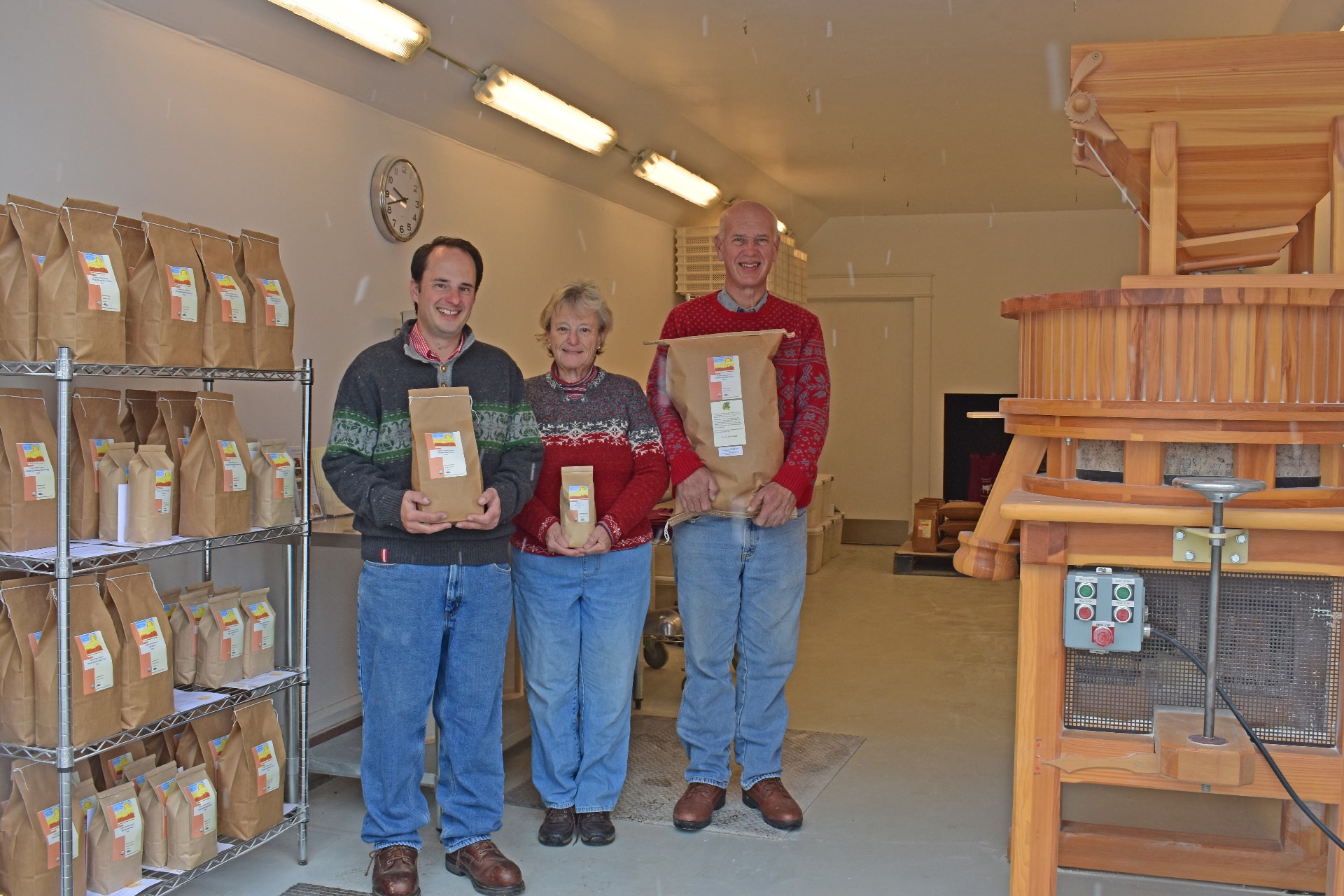
Nigel, Marcy and Dale Tudor of Weatherbury Farm
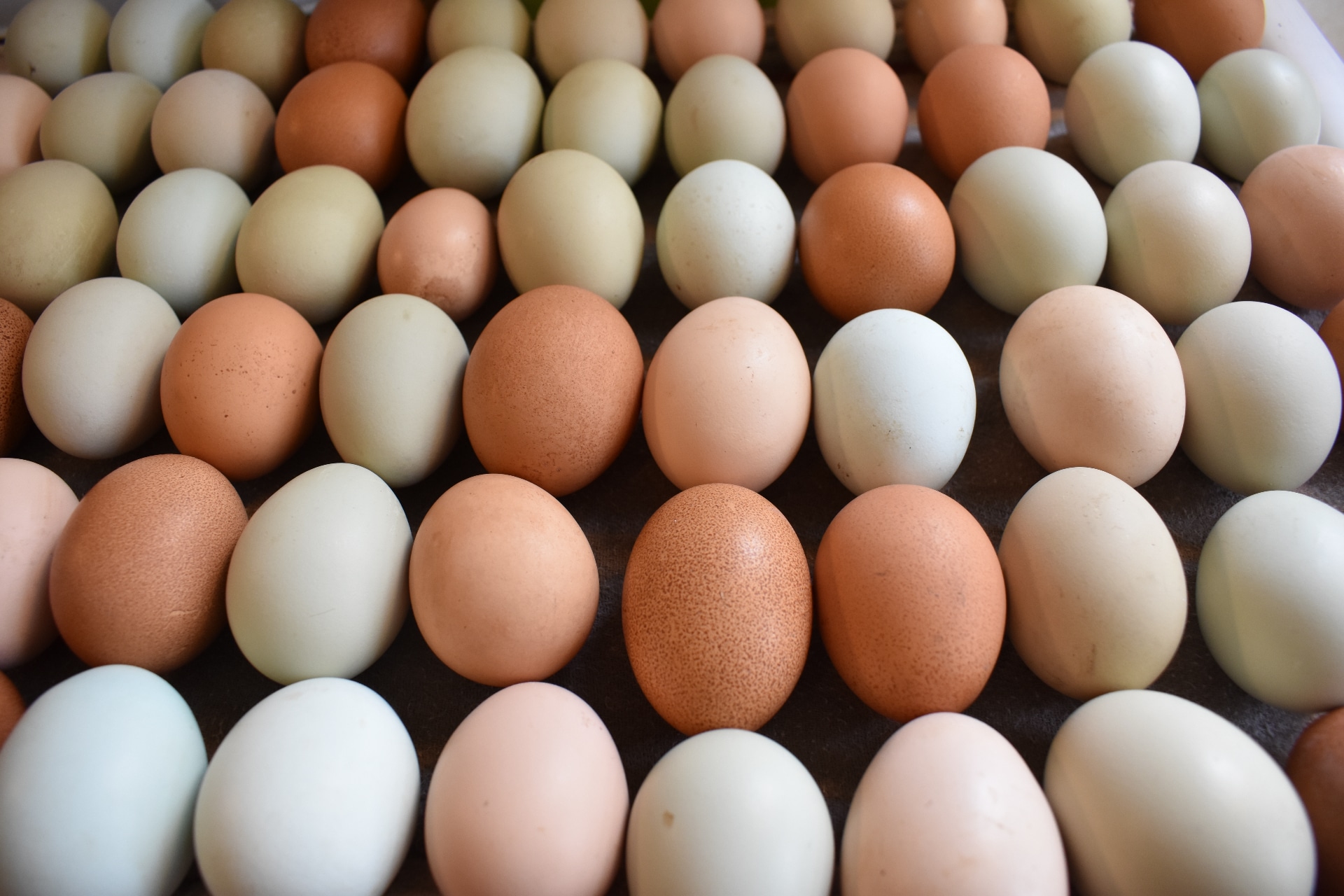
On their 100-acre farm, the Tudors, which include parents Dale and Marcy and their adult son Nigel, work tirelessly to carefully produce their grains, flours, beans, meat and eggs, and the quality unmistakably shines through. They are so serious about transparency and the provenance of their products, that the Weatherbury Farm includes a Grain Tracker feature that allows you to trace every kind of flour back to the field where the grains that made it were grown. All of the flour milling is done on-site, slowly and at low temperatures, at the farm on an Austrian-built mill.
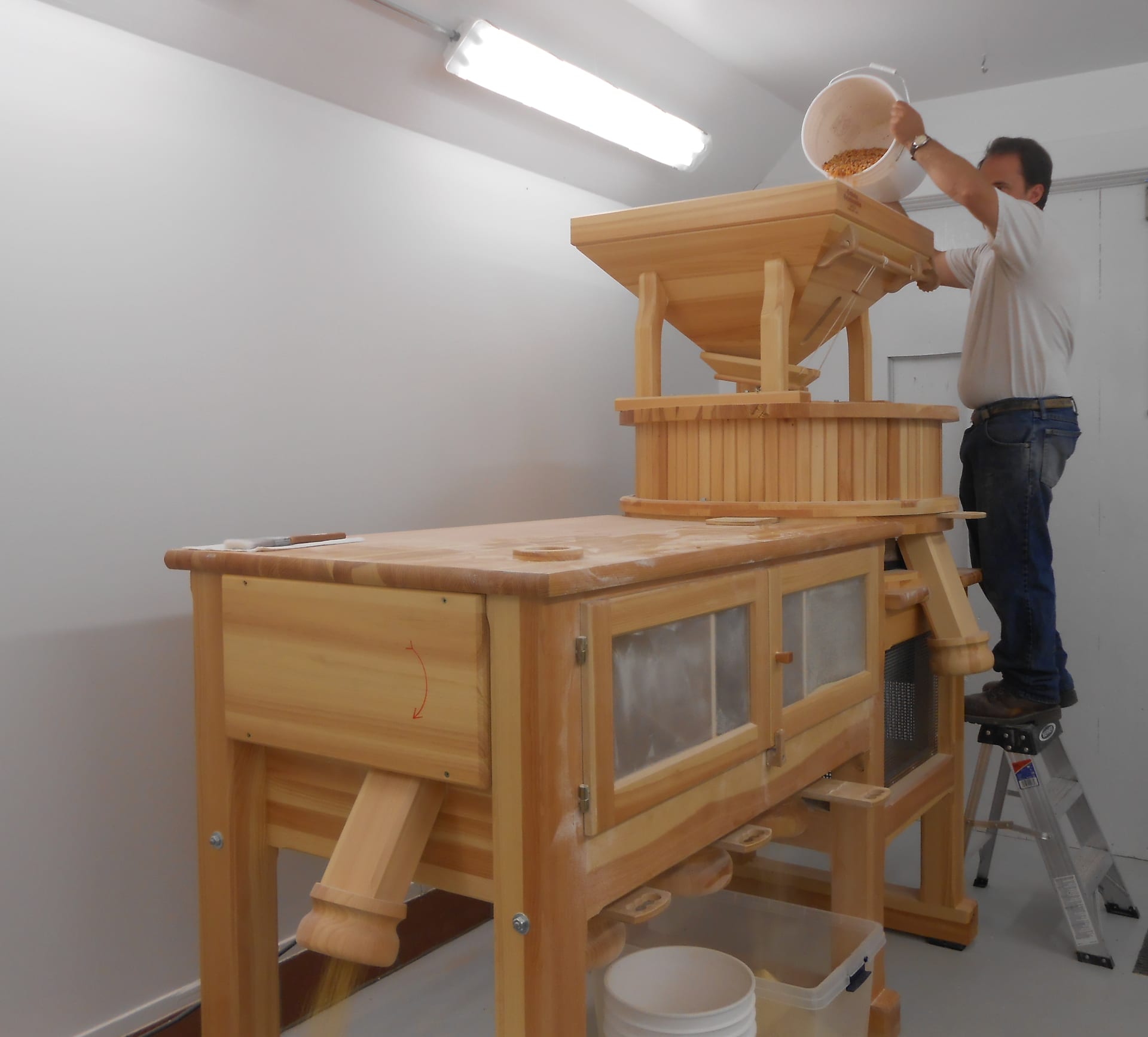
Nigel Tudor at Weatherbury Farm
We enjoyed a great conversation with Nigel Tudor, farmer and miller at Weatherbury Farm, and are excited to share more through this Meet the Farmer Q&A:
PA Eats: Weatherbury Farm is a family-owned operation. Does its history go back a few generations or did it start with your parents?
Nigel Tudor: My parents bought this farm in 1986. My mom grew up in Allentown and Reading and her grandfather owned a large farm in Robesonia, PA. My dad is a 4th-generation farmer and his family had a small farm in Williamsport.
What caused them to start their own farm versus continue on one of their family farms?
In the late 1970s, my mom’s grandfather’s farm was taken over by the state for the Blue Marsh Project, which was a flood control project. My dad moved to Pittsburgh with my mom, and they were working there. In 1980, they went to Germany for 15 months, as part of an exchange program through my dad’s work. I was born there, and on the weekends they’d travel Europe and that gave them the idea to open a bed-and-breakfast one day. [Back in the US] They started looking for 10-acre farms, but found our farm which is on 100 acres. They thought that, in addition to the B&B, we could farm it. They opened the bed-and-breakfast in 1992 and had a cow/calf operation.
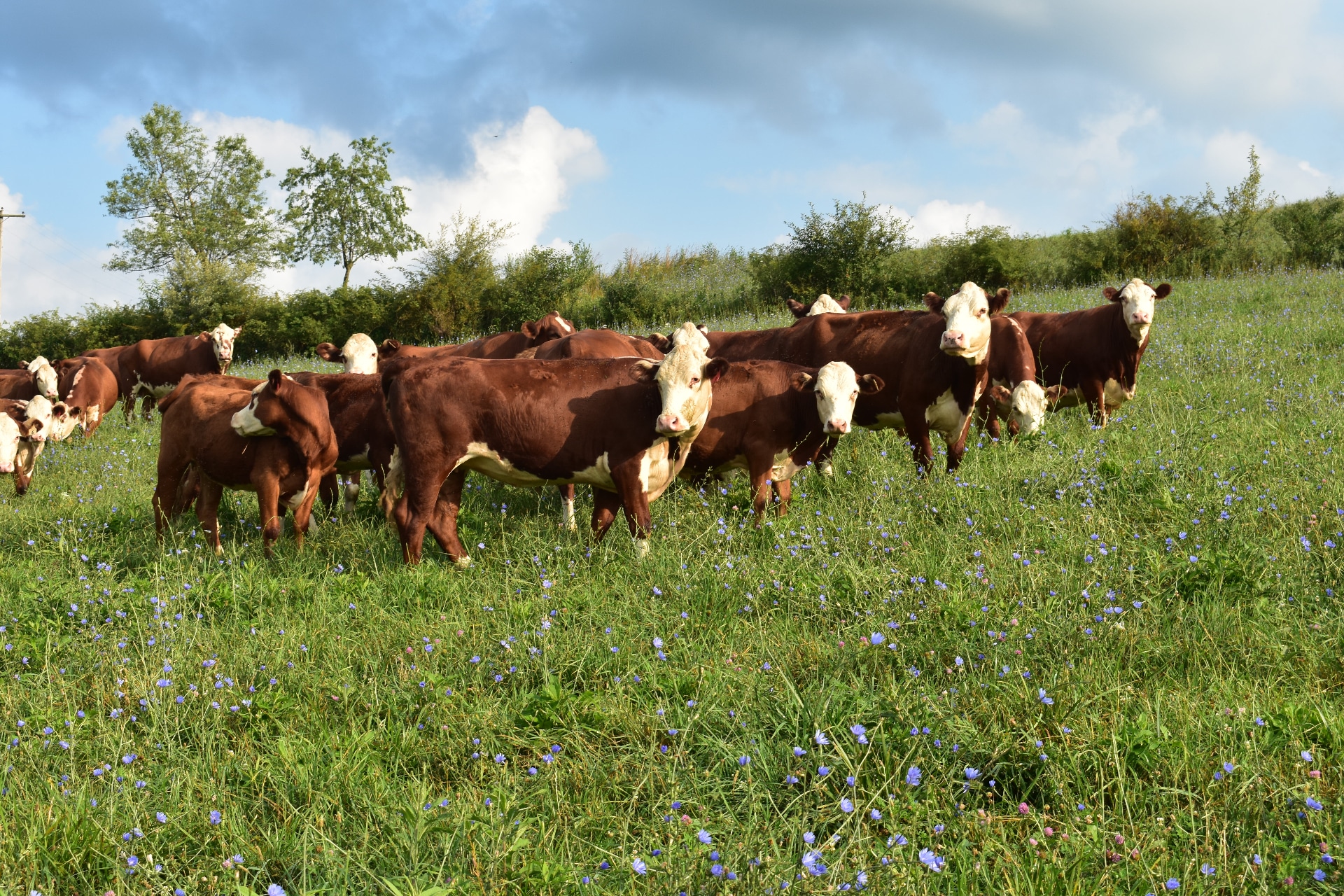
Have you worked on the farm your whole life or did you go your own way at some point?
I’ve worked here on the farm since I was five, when we moved here. For a while, I did blacksmithing and ornamental iron work, which pairs nicely with what we do now, because we have to modify, build and restore custom process machinery. Being able to do machine work and welding is very beneficial. I took classes at different places to learn specific skills, and actually went to Germany for five months to be part of a blacksmithing work-study program.
The farm has transitioned pretty significantly from the B&B days. Can you walk us through some of those changes?
In the early 2000s, we decided to do something different with the cows. We found out about grass fed beef, and started selling that in 2007. Because we started having more animals, we decided to grow straw along with hay to mulch the barn, and we thought, if we’re going to grow straw, we might as well grow something we can eat.
Also, how we market the grain has evolved over time. At first, we just sold our grains to a nearby flour mill and a few distilleries. We bought our own mill in 2011, but didn’t get it going until 2014. We started pulling back from the wholesale, because those prices haven’t gone up in 10 years, while the price of everything else has increased. Now, we’re focusing more on selling direct-to-consumer. We sell through mail order, and people come out every month to our on-farm pick ups. Actually last November was the largest on-farm flour pick up month we’ve ever had by about 25% or so.
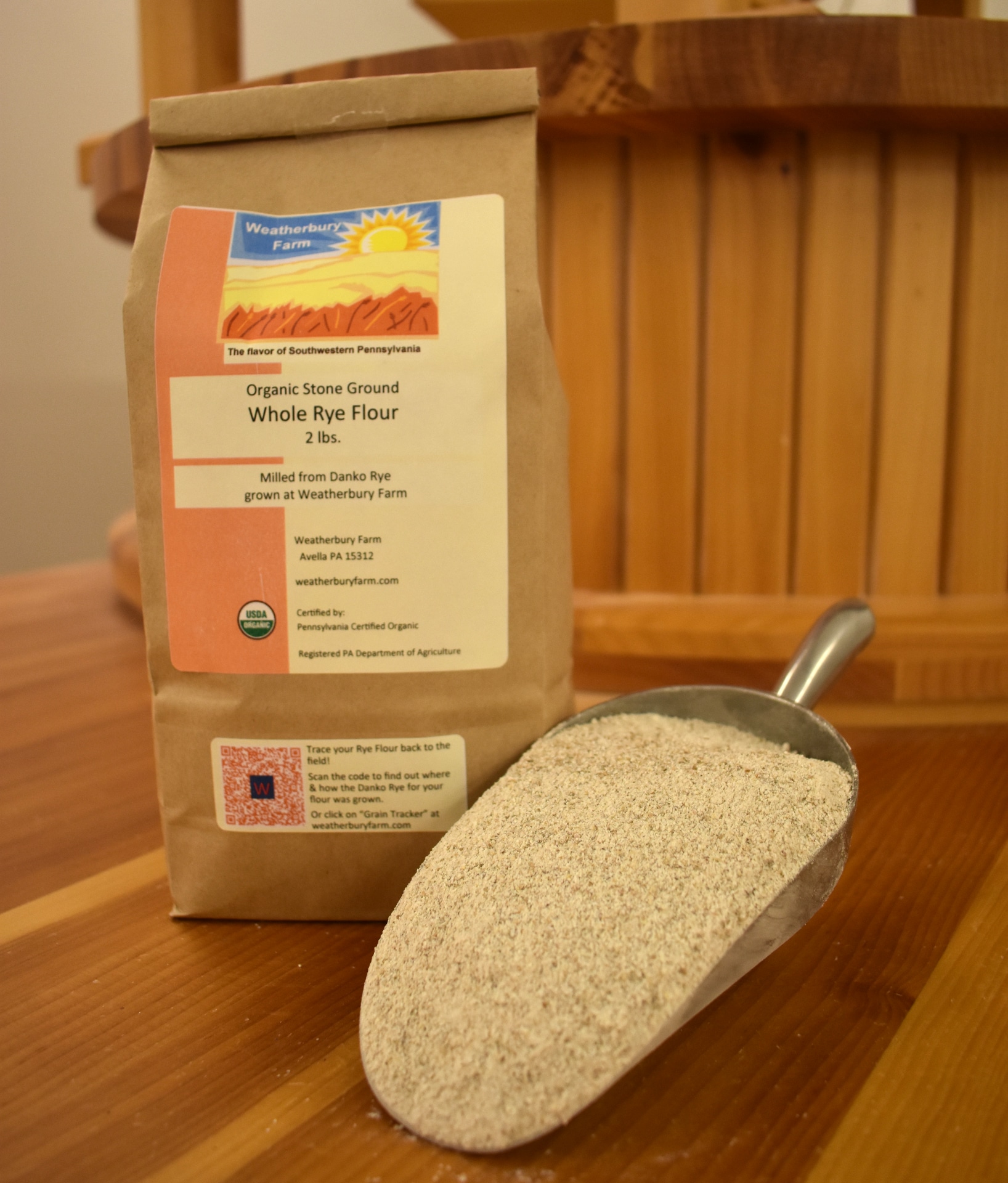
We ran the B&B from 1992 until 2017. As the farm got more intense, we scaled back the B&B and closed it in 2017. That decision was because there are only so many hours in the day.
You were on the forefront of the mainstream awareness of grass fed beef and heirloom grains. Did this inform the decision to change the focus of the farm?
Yeah, people didn’t really know about grass fed beef back in 2007. We might be the oldest grass fed beef producer in the Pittsburgh area. And it was the same with the grains – it wasn’t something people thought about. Even now, people who think of themselves as foodies often don’t even think about buying local in that way. It’s kind of ironic because grains make up the largest portion of your calorie consumption, so in my mind, that should be the most important thing to buy locally.
How did you and your family know how to approach these kinds of farming if they weren’t very well known?
We do everything slowly. It’s better to have a small success than a big failure; things need to be successful on a small scale, then you can go larger. When we started out, the only wheat people grew around here was soft red wheat, which we don’t even grow. They said you can’t grow hard wheat, you can’t grow white wheat, but you can. You just have to find varieties acclimated to our region.
Around that same time. Elizabeth Dyck from the Organic Growers Research and Information-Sharing Network did trials with Penn State and Cornell to select other wheat varieties that might do well in our region. They found some European and Canadian varieties that performed well, tasted good and baked well.
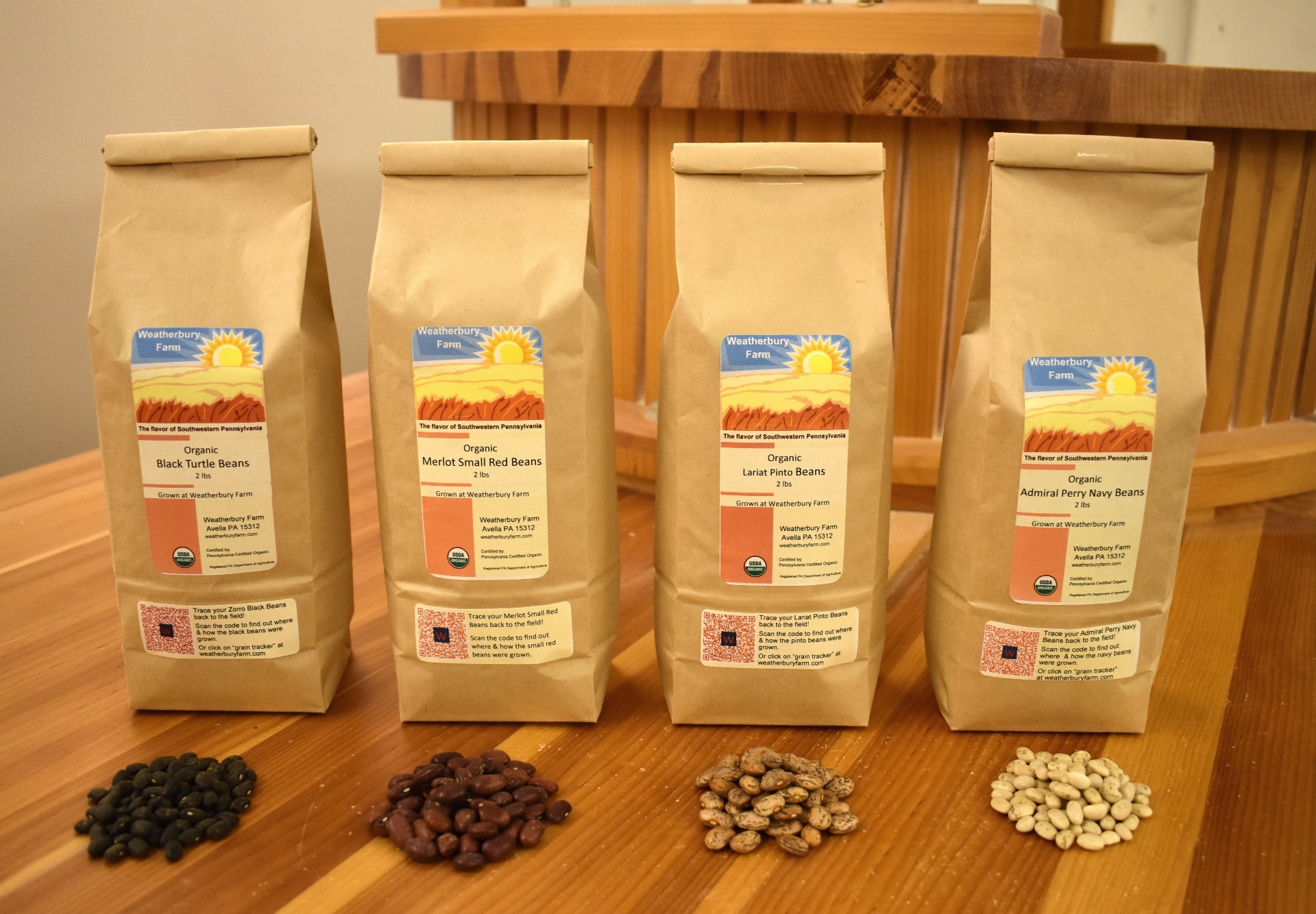
We’ve heard a number of farmers say that organic farming in Pennsylvania is very challenging. How do you approach those challenges?
It’s about figuring out processes that work. Just a few days ago, we planted spring wheat and oats, and the trick there is getting the seeds per acre right and getting them planted as early as possible. The later you plant, the more weed pressure you’re going to experience. We frost seed everything with clover, because if you can control what’s growing, that will help control the weeds. When the crop dries down, that’s when weeds take off, and a timely harvest helps with that. Plus, the sooner you get grain harvested, the better the quality.
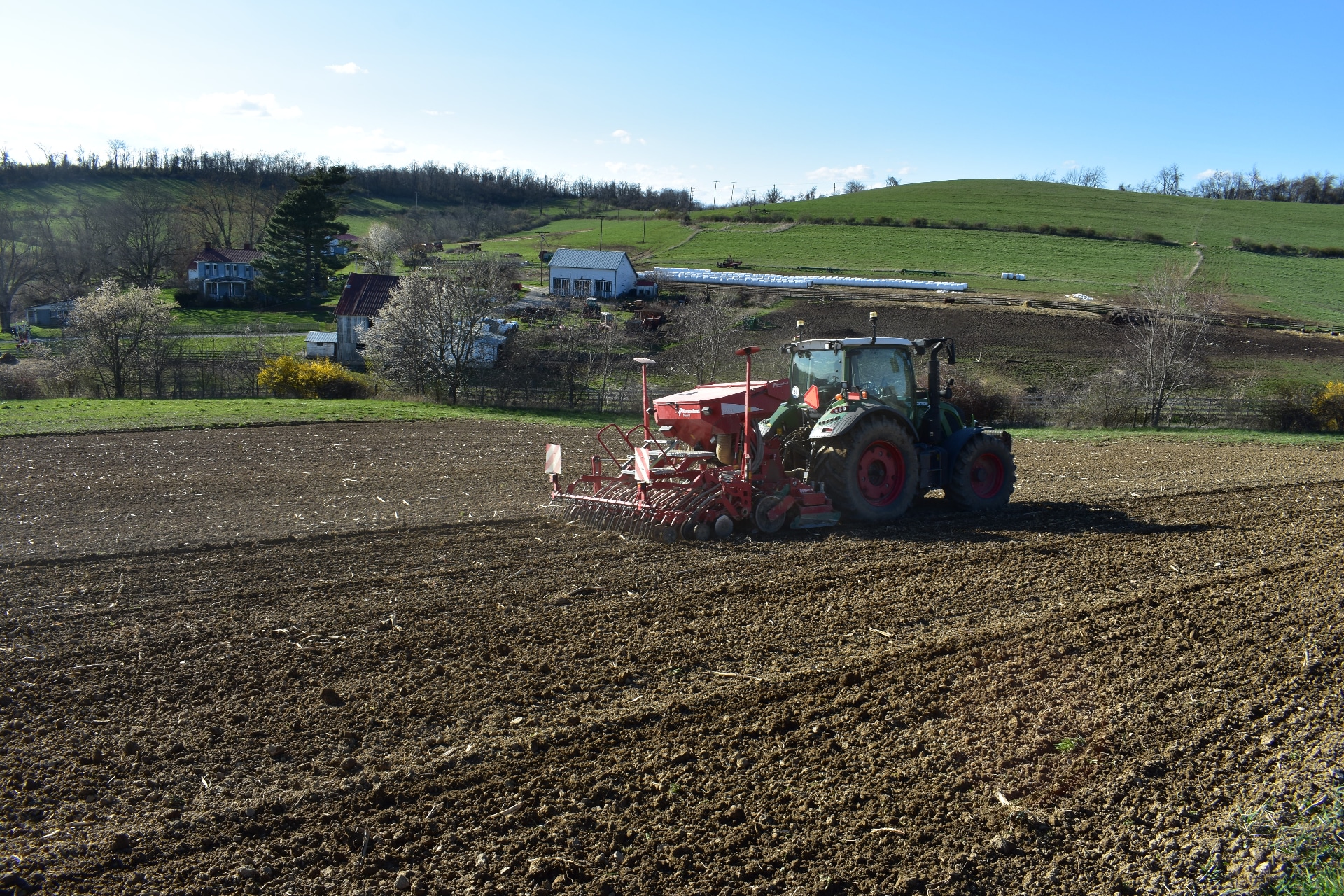
Also, it helps that we’re doing this on a smaller scale. We have rolling hills, small field sizes between 0.5 and 4.5 acres, with heavy loam soils. When it pours down rain, it takes days until we get back in the field. The topography of our land limits the size of the equipment and the soil type limits the days we can be in the field. So we have to figure out how to make something viable on a smaller scale, and that’s where direct marketing and value added really help.
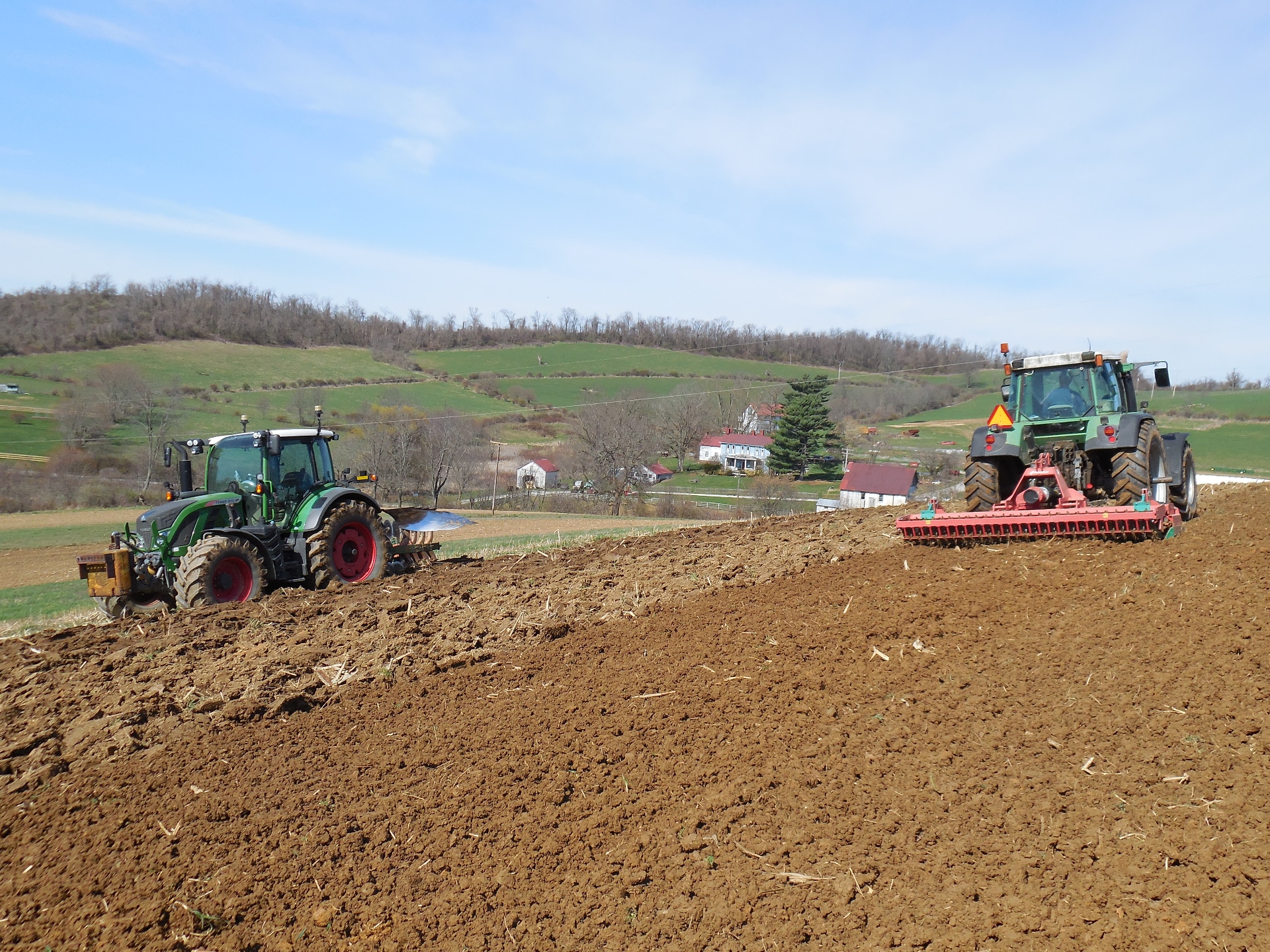
How is your time spent split between the grains and the beef?
Time-wise, we spend more time on the grain. The grass fed beef takes more of the land. Our grain fields, being in PA on hillsides, they’re contoured strips, and every other field is a hay field that the cows eat from, rotating with pastures. I spend probably 10 days a month milling flour, it’s fairly labor intensive.
How does the mill actually work?
We load the grain manually in the hopper, which feeds it into the millstone. A spindle called a damsel shakes back and forth and trickles grain into the millstone, then gravity makes it fall into the sifter. A spiral brush moves the product through the sifter. The screens in the sifter can be changed out; the first screen is the finest, and sifted bread flour comes from that. Then we replace that with coarser screens that help catch flour that didn’t get ground finely enough, and we run that back through the mill.
How and why is your estate-milled flour an improvement over commercial flour?
If you compare a grain to an egg, you have the shell, that’s the bran on wheat, then the endosperm, that’s like the white of the egg, then you have the germ, that’s like the yolk. It’s a little plant. Commercial flour removes the grain’s bran and germ, but the germ has oils and most of the nutrients. That’s why flour has to be enriched. But the germ gives the flour flavor, and it makes fresh stone milled flour taste better than commercial flour.
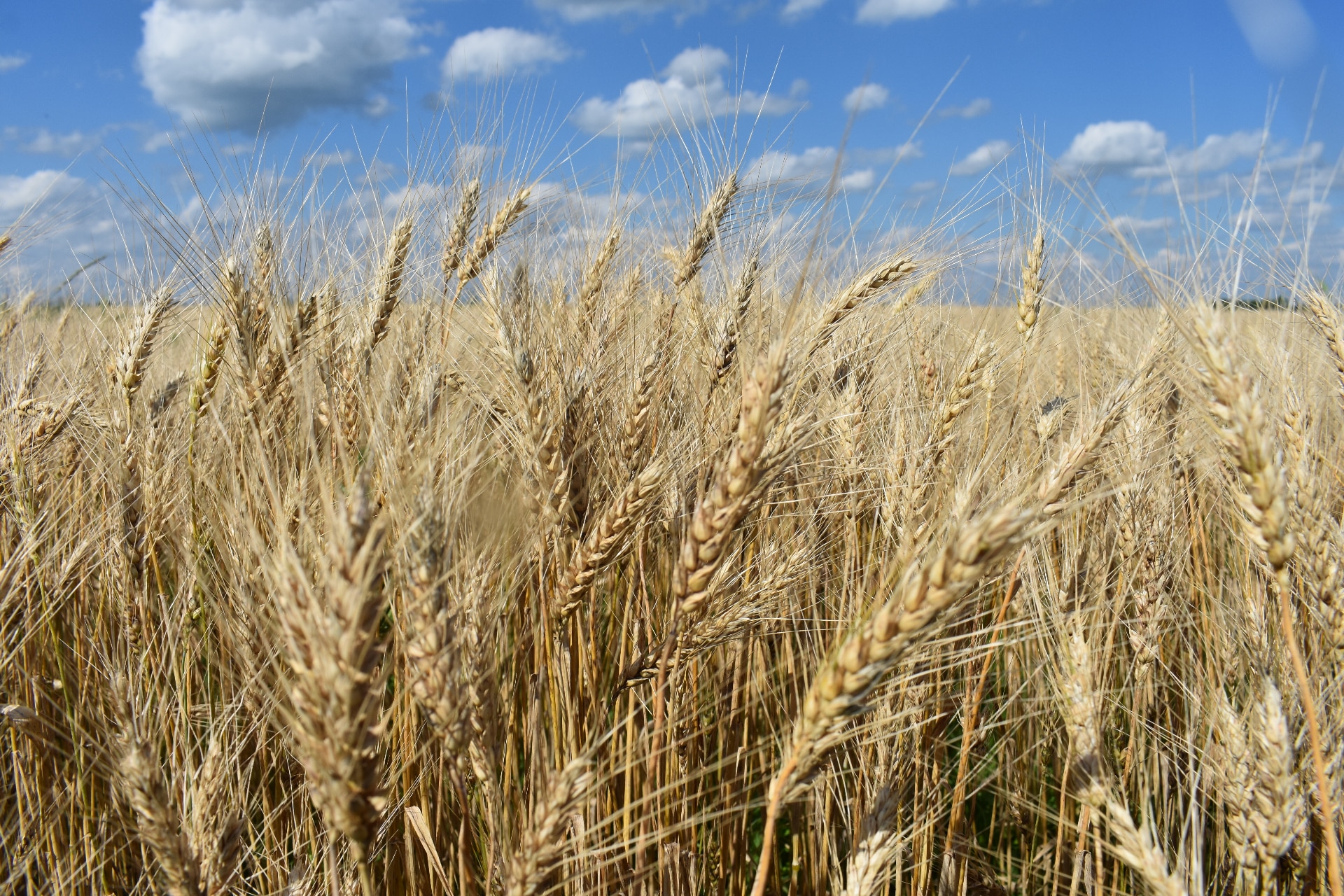
Are there any plans or changes on the horizon for Weatherbury Farm?
We’re actually in the process of adding a wood fired bakery, where we will have classes and eventually find a baker to work with as a partnership to run a retail bakery here. We’re hoping to start the classes later this year! We’ll also be making fresh frozen pasta which we’ll sell.
Recently, through a Sare Grant, which is an agricultural research grant, I designed a small pearling machine. To build it, I took a commercial pearling machine and scaled it down. The normal ones are 100- or 150-horsepower and can’t run on a rural service. I designed a pearling machine that runs on 10 horsepower. So, we’re going to start offering some pearled grains, as well.
What’s something you wish people understood better about what you do?
One misconception I think people have is that they think farmers just drive tractors around in circles, and don’t realize how hard farmers work.
Here, we’re harvesting hay May through September, then winter wheats around 4th of July or the week after, then we move through the small grains, like wheat, rye, spelt, emmer, einkorn and oats, then we’ll plant the buckwheat, which we harvest that in the fall. In the fall, we also harvest our corn, which is Wapsie Valley open pollinated heritage corn, and dried beans. In the winter, we think about resting but instead we do maintenance, repair and all the things we should have done in the summer.
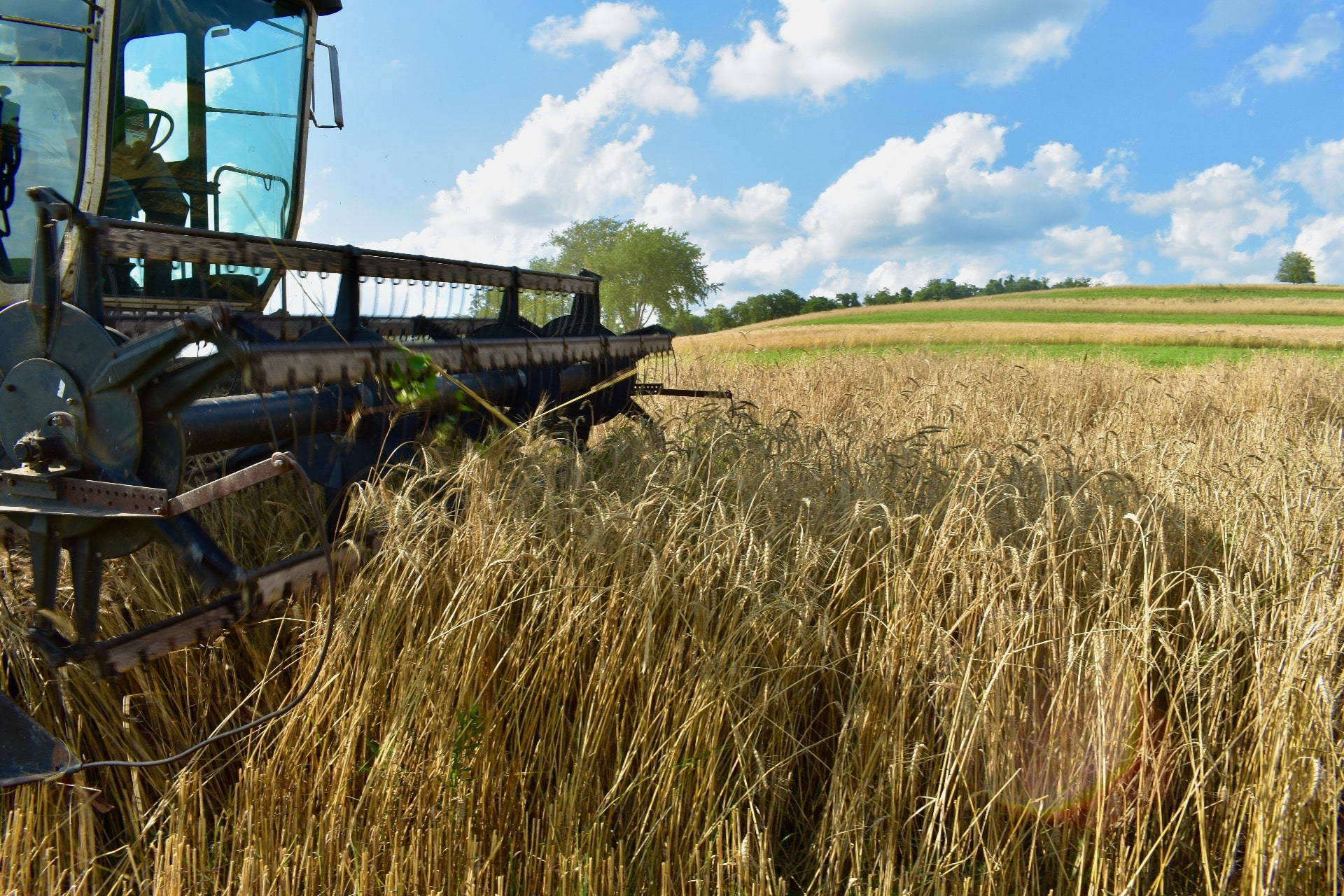
To learn more about Weatherbury Farm, visit its website and Facebook page. Its products, including flours, rolled grains and polenta are not available in stores or markets; to purchase, shop online or place an order for an upcoming on-farm flour pick-up.
Find Weatherbury Farm at 1061 Sugar Run Rd. in Avella, PA; phone: (724) 587-3763.
- Photos courtesy of : Weatherbury Farm
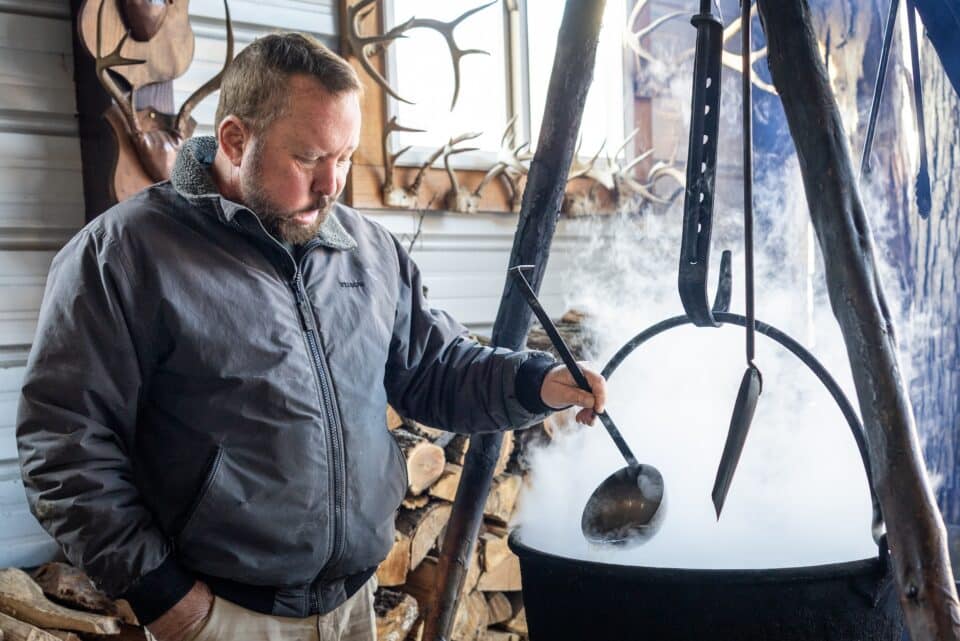
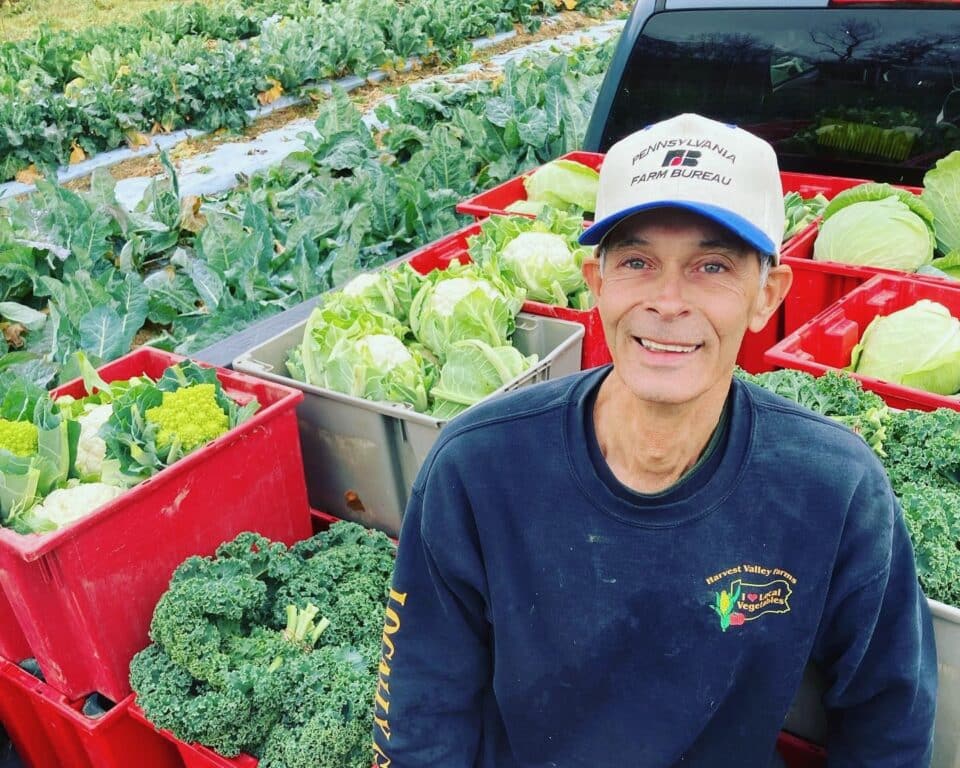
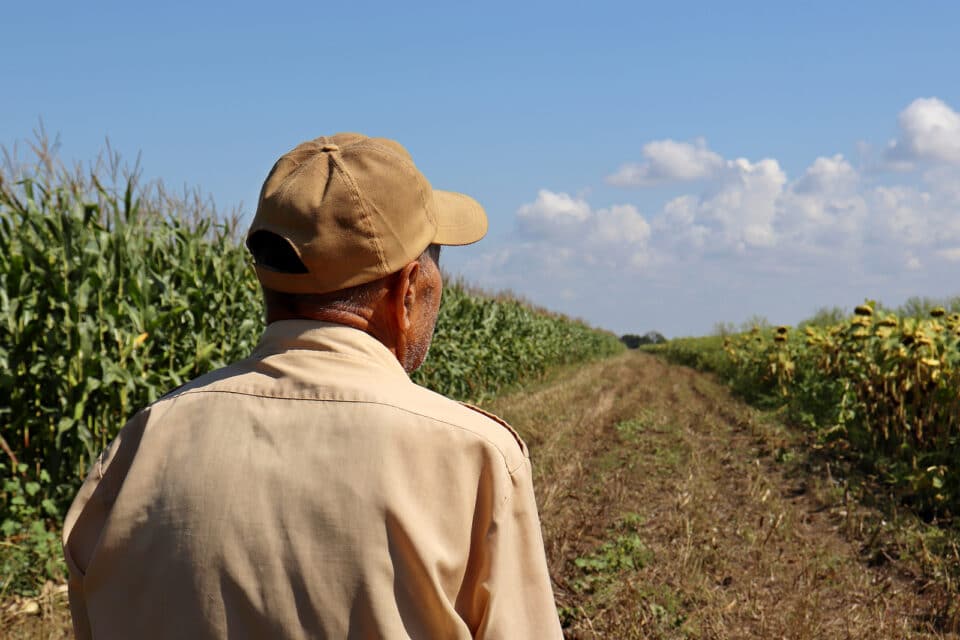


One Comment